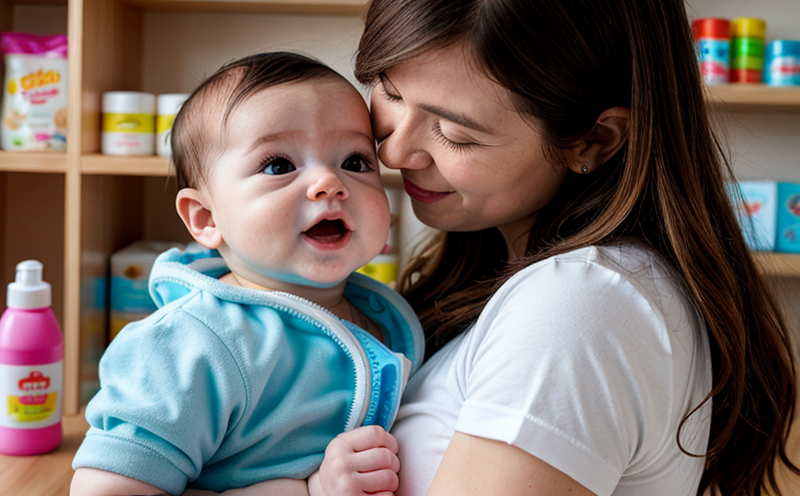Harness Safety Testing in Baby Car Seats
In the realm of consumer products and product safety testing, harness safety is a critical aspect that ensures the protection and well-being of infants during travel. The harness in baby car seats serves as the first line of defense against potential accidents. Properly designed and tested harness systems are essential to mitigate the risk of injury from various forces such as impact or sudden braking.
The standards governing this type of testing include ISO 14342-2 for side-impact tests, which specifies performance criteria based on dynamic sled testing. This standard ensures that baby car seats meet stringent requirements to protect children effectively in the event of a crash. Compliance with these regulations is not only about meeting legal thresholds but also ensuring that products are safe and reliable.
Testing harnesses involves subjecting them to simulated real-world scenarios, such as side-impact crashes at various angles and speeds. This helps identify any weaknesses or potential hazards in the design of the harness. Additionally, manufacturers must ensure that all components used in harness construction comply with relevant materials testing standards like EN 16252 for plastics.
Manufacturers undergo rigorous product development processes to design safe and effective harness systems. These include extensive prototyping phases followed by thorough testing using advanced equipment such as crash test dummies, sled testers, and specialized software simulations. By adhering strictly to international standards, companies can ensure their products meet the highest levels of safety.
The importance of harness safety cannot be overstated; it directly impacts infant health and development during transportation. When selecting a baby car seat for your family or recommending one to parents, always look for models that have passed comprehensive harness testing according to recognized standards. Investing in properly tested products can provide peace of mind knowing you're providing optimal protection for your little one.
- Dynamic sled testing simulates real-world crash conditions
- Impact resistance is measured at various angles and speeds
- Metallic parts undergo fatigue tests to ensure durability
- Plastics are evaluated for strength under stress
In conclusion, harness safety testing in baby car seats plays a pivotal role in safeguarding infants' lives. By following established protocols and using state-of-the-art technology, manufacturers can create safer products that meet the highest standards of quality and reliability.
Benefits
Comprehensive harness safety testing brings numerous advantages to both manufacturers and end-users:
- Enhanced Safety: Ensures that baby car seats meet strict safety guidelines, reducing the risk of injury.
- Improved Reputation: Builds trust with consumers who value product safety.
- Regulatory Compliance: Helps avoid legal issues and penalties by ensuring adherence to international standards.
- Innovation Opportunities: Encourages continuous improvement in design through rigorous testing protocols.
These benefits translate into greater customer satisfaction, increased market share, and ultimately, a safer environment for all.
Why Choose This Test
- Comprehensive Coverage: Tests cover a wide range of scenarios including side impacts, rear-end collisions, and sudden stops.
- Expertise: Our team specializes in harness safety testing with years of experience in the field.
- State-of-the-Art Equipment: Utilizes advanced technology to simulate real-world conditions accurately.
- Accurate Reporting: Provides detailed reports highlighting strengths and areas for improvement.
Choosing our harness safety testing service ensures that you receive reliable, accurate results backed by expert knowledge and cutting-edge equipment. This commitment to quality sets us apart in the industry.
Customer Impact and Satisfaction
Properly designed and tested harness systems contribute significantly to reducing accidents involving infants traveling in car seats. When parents trust that their child's safety is paramount, it fosters greater customer satisfaction and loyalty towards the brand.
The process of selecting a baby car seat can be overwhelming for many parents. Knowing that the product they choose has undergone rigorous testing provides reassurance and encourages informed purchasing decisions. This not only enhances consumer confidence but also promotes safer travel practices among families.
Manufacturers who invest in harness safety testing demonstrate their commitment to delivering high-quality, reliable products. Such investments resonate positively with consumers seeking assurance about the safety features of baby car seats. As a result, these brands enjoy enhanced reputation and trust from their customers.





